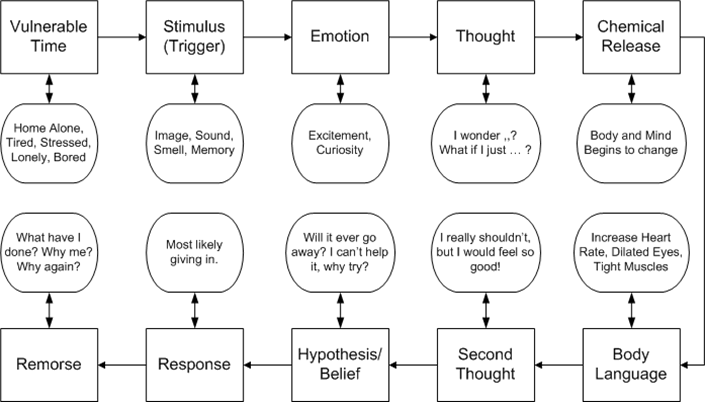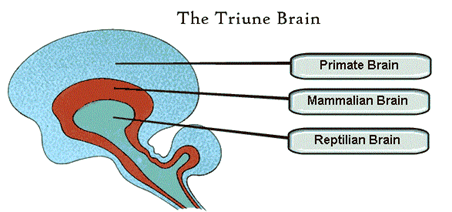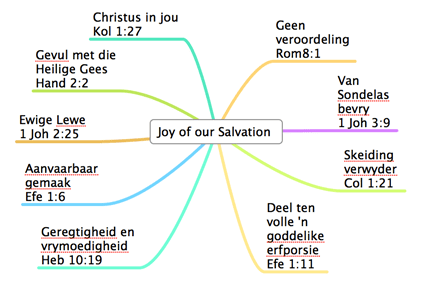FOR GOD – The Bible declare God hates divorce. (Malachi 2:10-16) We made a vow before God and witnesses; “what God has brought together, let no man separates” Jesus made it very clear that Moses offered the people divorce letters, but before God there is no separation. (Matthew 19:4-8) As believers we have no right to divorce unless our partner has already committed adultery, and when your spouse who is an unbeliever seeks to be separated. (1Corinthians 7:27-28) We are joined to each other in covenant, and we cannot separate. As believers we belong to God, and we are His dwelling place, how can we allow the members of his body to be defiled? (1 Corinthians 6:16-19) God will judge adulterers and divorcees. (Hebrews 13:4) Joseph resisted the daily seduction of Potiphar’s wife because of his love for God. He asked her, “How … could I do this great evil and sin against God?” (Genesis 39:9). God wants us to develop a passion for Him that is greater than our passion to sin!
FOR TRUE LOVE – So many people say: “I do not love my spouse anymore, should I stay in a loveless marriage for the sake of marriage?” This reveals a great deception where these people value “love” more than they value obedience to God. Love is now their god. They believe that love will make them happy. Erotic romantic love makes you feel empowered, you feel invincible, you feel alive, your happiness is focussed on your lover, and you cannot get them out of your head. People even give their lovers’ god-like names, and become poetic of the wonderful, glorious, illuminated, transcending experience. The sad truth is, that all this is a chemical reaction in the brain that releases dopamine that wears off over time. Love is what brings a couple together, but we need more than mere romantic love to remain together. Do the 1 Corinthians 13 love test, and discover God’s kind of love.
FOR HONOR – Honour is the stuff heroes are made of. Honour is what makes our lives reach over time and generations. We remember people either for their honour or their failure. Honour your father and mother that you may have a long life. Honour is a form of godliness where we are touching divinity. When we do the honourable thing, doing what is right, we expose the quality of our heart and character. Choosing the path of honour is not easy, sacrificing our lives in the process. People who get divorced for any other reason than adultery, physical abuse and manipulation towards criminal behaviour has no honour. Marriage is honourable, it is holy. Hebrews 13:4. Honour God, honour family, and honour yourself!
FOR IT IS MY CALLING AND RESPONSIBILITY – When we consider and fulfil our various roles: husband as leader and wives as helpmate we bring honour to the relationship. When we allow emotions and circumstances to override our responsibility, position and role we open the door to various kinds of evil. We leave our partner uncovered, exposed to attack. Make your calling and identity sure. (1 Peter 1:10) You are not an adulterer, liar, thief, a betrayer and unfaithful person! But giving in to sin, distorts God’s destiny and calling over your life, and soon you will become exactly that. Respect yourself and God’s call upon your life enough to not sell your birth right for a morsel of bread. Cheating is not a mistake, it is a choice. Loyalty is a responsibility not a choice.
FOR LEGACY – We model right living to our children and thus build a legacy for our children to follow. We give up rights and privileges now, so in the future our children may have it easier. Marriage faithfulness is the foundation of building a legacy for our children. The family unit becomes the bases of family enterprise that provides for generations to come. Once we brake this up, we divide not only the family but also the family’s provision. So many children today have lost hope and faith in the sanctity and purpose of marriage because they have so few examples to follow. Children now have to make and discover their own way, because this generation selfishly only provided for themselves. Children do not learn through their ears, they learn through their experiences. What experience are you creating for your children? Your decision will affect them for the rest of their lives.
FOR KEEPING YOUR WORD – One of my best friends were married for 22 years when his wife contracted colon cancer. She became very sick, and they did not enjoy the pleasures of marriage anymore. He had to take care of her, she was in much pain and as a result became difficult and unreasonable at times. After she passed away, I asked him one day; “why did you remain faithful?” His quick and prompt reply moved me; “I gave my word!” That’s it! We do not always have much to give as humans, but our word! Many people’s words has become meaningless without substance, because you cannot take them on their word. You made a vow before God and witness, you should therefor get all those people together, and try to convince them why you are now seeking a divorce.
FOR SAFETY AND SECURITY – Marriage provides financial security if we work hard and are faithful with what we have received. Together husband and wives build together to establish a home, and provide for their children, saving also for their old age, and in some cases they have to help provide for their respective parents too. Divorce destroys this nest egg. Wives who have not been working full-time, are thrown back in the corporate world often at old age to start at the bottom again. They have lost the security and safety of marriage. The children are often also the victims of financial difficulty, because of the losses and costs of divorce. Thus also losing the safety and security home should have provided. It is unbelievable to see what people are willing to pay for giving up their marriages, if they have spent the same money and effort on working at their problems the marriage could have been saved.
FOR PERSONAL GROWTH – Walking out of a relationship most people have little understanding on what contributed to the breakup. We can usually tell in elaborate detail what our partners have done wrong, but we do not see our own error. We then enter the new relationship, with the same baggage and unchanged. Conflict in a relationship is sometimes necessary to expose the areas in our lives where we are not Christ like. People get divorced mostly because they have been hurt by a partner’s un Christ like behaviour. When we live to grow in Christ’s humility, meekness, gentleness, the fruit of the spirit, godly character, faithfulness, loyalty and love no one in the world would want to leave and separate. There can thus be no justification for divorce, but our own fickle hearts and unrestrained passions.
FOR NOT BECOMING A ‘THIEF’ – When getting involved emotionally with a married person, you are setting up a scene of fraud and theft. You taking something that belongs to someone else. Have you ever felt the powerless feeling when walking into your house that has been robbed? You are that person stealing! You are also the thief that is about to steal the trust and respect of the partner that have committed their life to you. The pain of betrayal is like mourning the death of a loved one, but they are still alive and hurting you continually. One lady whose husband was unfaithful wrote in a letter to him: “you have robbed me for keeps, you make your partner an adulterer. How will it feel if your partner would leave you for someone else? The one person I allowed in, with whom I had no defence or secrets betrayed me!
FOR OLD AGE PARTNERSHIP – Most breakups in relationships happens around the first 7 years and then once the children have left home. This is when couples have to recommit themselves and renew their vows, because they’re not the same people they once were. Yet the period we need a partner the most is in old age! As we grow older we become fragile and more and more dependent on each-other. Many times the one partner becomes more dependent. Difficult adults become very difficult old people. This is why we had to grow, adapt and change as individuals in character and person, to become the best we can be at the end. It is in old age where we appreciate it the most, the lives we have lived. This was the intend at the beginning was it not? Growing old together!
FOR FRIENDSHIP – In divorce you lose not only a partner but you lose your friends too. When a couple gets divorced it brings an end to most of the friendships they have once shared. Friends have to decide with which partner they are going to side. Those who keeps their distance to not get involved, remain uninvolved altogether. As friends we were supposed to get old together. Divorce has such a huge ripple-effect on the extended family and friendship circle we belong to. This is why a healthy family is the bedrock of society’s moral fibre and strength.
FOR ENDURANCE – Being single is terrifying. The dating scene is so clouded, where hidden motives thrives, and pretence, broken hearts seeking solitude. The uncertainty of finding love again, as specially getting older is a huge challenge. Sexually it is about making that special connection, finding the one! We all seek intimacy, to know and to be known… But this really becomes quite a challenge if we have no way to know, to be certain to find that special person. Enduring with the one you do know is certainly much easier.
FOR THE RIGHT FOUNDATION – A relationship build on adultery and someone else’s heartbreak is doomed for failure. There will always be trust issues and respect issues. The divorce rate after the second marriage is considerably higher. Once you have been unfaithful, it is easy to do it again.
FOR LOYALTY – We all treasure loyalty and fear the abandonment of the one we love. Yet some are willing to do exactly that and betray their partner, helpmate our spouse. Beware of turning your heart and seek to be nourished elsewhere. All relationships go through difficulty, the routine of daily living, the boring shores of responsibility and duty. One may feel entitled to justify your unfaithfulness because of core needs not met within marriage. The bible instructs us to drink from your own fountain, the wife of your youth. (Proverbs 5:18) All sexual needs should be met within marriage. (1 Corinthians 7:1-5) Learn to be content whether you get what you want or not. Marriage is about give and take. If only one member in the relationship do all the sacrifices it will lead to disillusionment and discouragement. Kindle and rekindle the fire within the relationship and stay in the boat.
FOR IT IS WORTH IT – I would love to ask every person who ever walked out and committed adultery, whether it was worth it in the end? Years later after all the damage caused has settled down, and the new relationship now also becomes routine, was it worth it?
Fight for you marriage, it is worth it!
Why remain faithful in Marriage




 Dit is die belofte wat feitlik elke man en vrou aan mekaar sweer voor die Here en getuies op hulle troudag. “Ek belowe ek sal getrou aan jou wees… tot die dood ons skei.” Tog breek ons hierdie belofte so gou vir byna elke rede onder die son. “Ek is nie meer lief vir jou nie” of “ek voel eensaam” of “my maat verstaan my nie, ek voel nie meer in voeling met my maat nie.” of “My maat doen dit… of dat…” Die feit is ons regverdig ons ontrouheid. Ons bou innerlik ʼn regsaak op om ons optrede te regverdig.
Dit is die belofte wat feitlik elke man en vrou aan mekaar sweer voor die Here en getuies op hulle troudag. “Ek belowe ek sal getrou aan jou wees… tot die dood ons skei.” Tog breek ons hierdie belofte so gou vir byna elke rede onder die son. “Ek is nie meer lief vir jou nie” of “ek voel eensaam” of “my maat verstaan my nie, ek voel nie meer in voeling met my maat nie.” of “My maat doen dit… of dat…” Die feit is ons regverdig ons ontrouheid. Ons bou innerlik ʼn regsaak op om ons optrede te regverdig.


 Buite die raamwerk van intimiteit en eenwording in ons verhouding met God, ons maat, en die liggaam, word die einste middel wat ons gebruik vir ontvlugting ons tronksel. Ons wat geskape is na God se beeld, raak slaaf van geskape middels.
Buite die raamwerk van intimiteit en eenwording in ons verhouding met God, ons maat, en die liggaam, word die einste middel wat ons gebruik vir ontvlugting ons tronksel. Ons wat geskape is na God se beeld, raak slaaf van geskape middels. This brain is the first to be developed. It is responsible for autonomic bodily functions such as heartbeat, breathing, and temperature control. It is also responsible for the most important human needs, such as survival, feeding and mating.
This brain is the first to be developed. It is responsible for autonomic bodily functions such as heartbeat, breathing, and temperature control. It is also responsible for the most important human needs, such as survival, feeding and mating. Kyk net na die volgende “mindmap” en sien die vrymaking en verlossing van jou redding!
Kyk net na die volgende “mindmap” en sien die vrymaking en verlossing van jou redding!